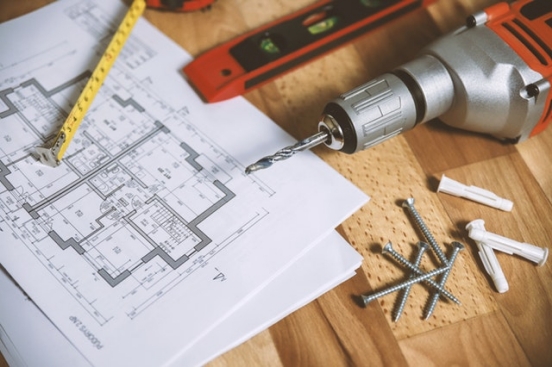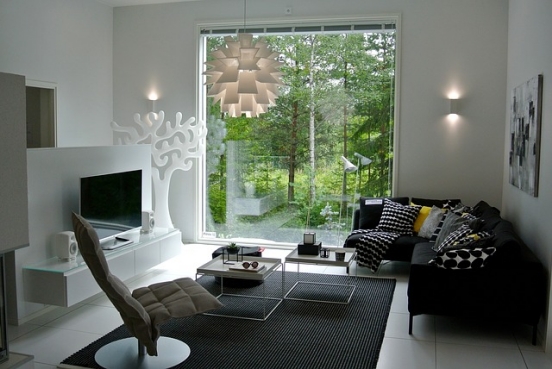Renovating an old house
To help develop this article click 'Edit this article' above.
Contents |
[edit] Introduction
Home renovation projects are not as easy as they make the look on TV, especially in an old house. If you’re considering renovating your period home, it can be overwhelming, and the budget can be large.
However, once all the renovations are done, you could be left with a beautiful home that boasts period architecture but is filled with the latest contemporary, green and energy-efficient solutions.
[edit] Plan and design
You will first need to plan everything out and come up with an optimal design and determine the budget for your project. Inform yourself about the current prices and even call in a contractor to estimate how much money you’ll need to set aside. Once you get the estimated price, increase it by around 10-30 % (for unplanned expenses) and that will be your budget. Next, make sure you organise all the contractors to avoid downtime as much as possible. Discuss your design with an architect and engineer to see if it is realistic and whether it will comply with regulations. It is likely that the original design will need to be altered, so be ready to make some compromises.
Permissions are likely to be required such as planning permission and building regulations approval.
[edit] Structural inspection and repairs
Inspect (or arrange inspection by suitably qualified professionals) the structure of your home. This includes the foundation, roof, walls, windows, doors, and so on. No matter how sturdy your roof is, chances are that it will need some work. Does the structure have any cracks or weak spots that require attention. You can even choose to add an additional layer of insulation to make your home more energy efficient. You may wish to replace your outdated windows with newer eco-friendly alternatives to boost your home’s energy efficiency. Finally, inspect the foundation and see if it requires any repairs.
[edit] Check the grid
Power and water should be your next concern. Other than all the damage, a faulty water grid can cause – such as leaky pipes that can cause serious structural damage to your foundation and walls or promote mould and mildew growth – old pipes can even contain lead which can be detrimental to your health. When it comes to the gas or electrical distribution, you need to call in the experts to assess its condition and make any alterations necessary
In some countries, such as Australia and the UK, dealing some aspects of electricity or gas on your own is illegal.
[edit] Restore old features
The beauty of old homes lies in their intrinsic charm, and you may wish to restore their original features. In some instances, these features can be so old and in such poor condition that it may be necessary to find convincing replicas.
[edit] Decoration
Even if there is a room where no works were done, you should redecorate it as well. Since wallpapers were extremely popular in the olden days, you can even find some that appeal to your aesthetic and implement them instead of paint. However, make sure you first test your old paint for lead and if you find any, remove it before you apply the new one.
For more information see: Renovation
[edit] Related articles on Designing Buildings Wiki
- Alterations to existing buildings.
- Avoiding planning permission pitfalls.
- Basements in buildings.
- Bidding for renovation works.
- Building an extension.
- Building regulations.
- Conservation of the historic environment.
- Façade retention.
- How to build a garage.
- How to build a porch.
- International Existing Building Code (IEBC).
- Licence to alter.
- Loft conversion.
- Making good.
- Permitted development.
- Planning permission.
- Refurbishment.
- Remedial works.
- Renovation.
- Renovation v refurbishment v retrofit.
- Restoration.
- Retrofit.
- Self-build home: project plan.
Featured articles and news
A case study and a warning to would-be developers
Creating four dwellings for people to come home to... after half a century of doing this job, why, oh why, is it so difficult?
Reform of the fire engineering profession
Fire Engineers Advisory Panel: Authoritative Statement, reactions and next steps.
Restoration and renewal of the Palace of Westminster
A complex project of cultural significance from full decant to EMI, opportunities and a potential a way forward.
Apprenticeships and the responsibility we share
Perspectives from the CIOB President as National Apprentice Week comes to a close.
The first line of defence against rain, wind and snow.
Building Safety recap January, 2026
What we missed at the end of last year, and at the start of this...
National Apprenticeship Week 2026, 9-15 Feb
Shining a light on the positive impacts for businesses, their apprentices and the wider economy alike.
Applications and benefits of acoustic flooring
From commercial to retail.
From solid to sprung and ribbed to raised.
Strengthening industry collaboration in Hong Kong
Hong Kong Institute of Construction and The Chartered Institute of Building sign Memorandum of Understanding.
A detailed description from the experts at Cornish Lime.
IHBC planning for growth with corporate plan development
Grow with the Institute by volunteering and CP25 consultation.
Connecting ambition and action for designers and specifiers.
Electrical skills gap deepens as apprenticeship starts fall despite surging demand says ECA.
Built environment bodies deepen joint action on EDI
B.E.Inclusive initiative agree next phase of joint equity, diversity and inclusion (EDI) action plan.
Recognising culture as key to sustainable economic growth
Creative UK Provocation paper: Culture as Growth Infrastructure.
Futurebuild and UK Construction Week London Unite
Creating the UK’s Built Environment Super Event and over 25 other key partnerships.
Welsh and Scottish 2026 elections
Manifestos for the built environment for upcoming same May day elections.
Advancing BIM education with a competency framework
“We don’t need people who can just draw in 3D. We need people who can think in data.”





























